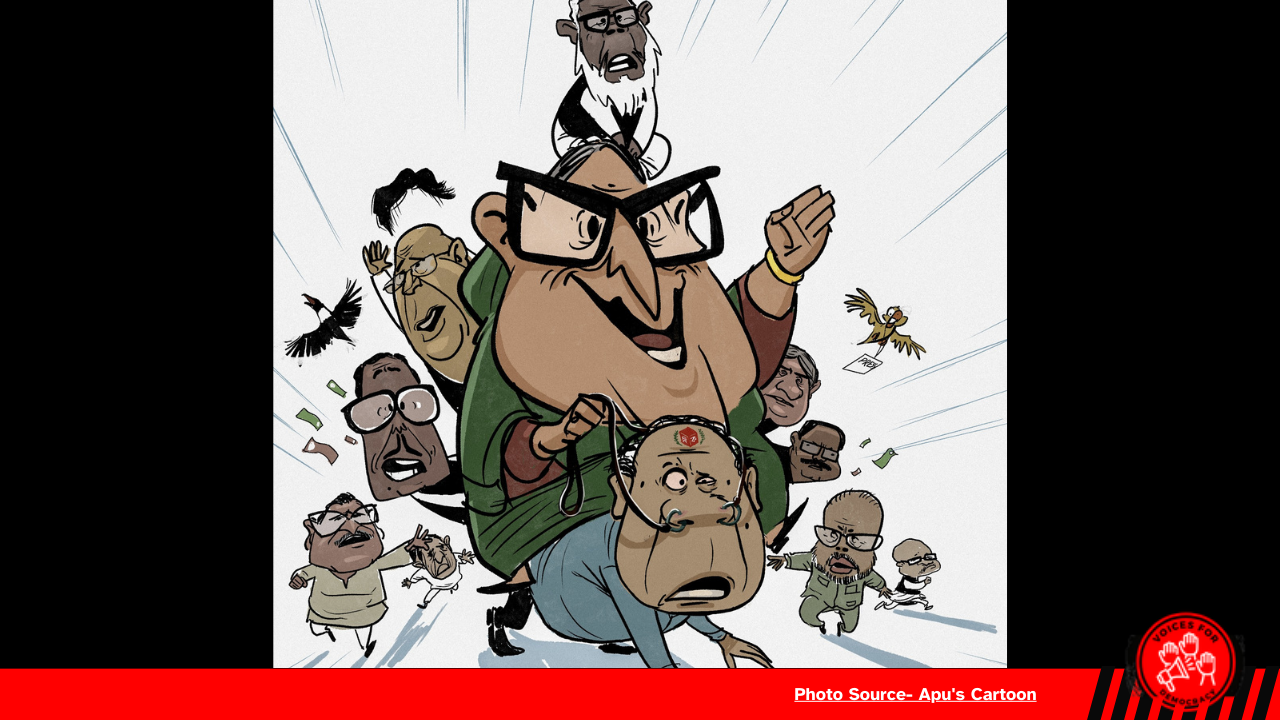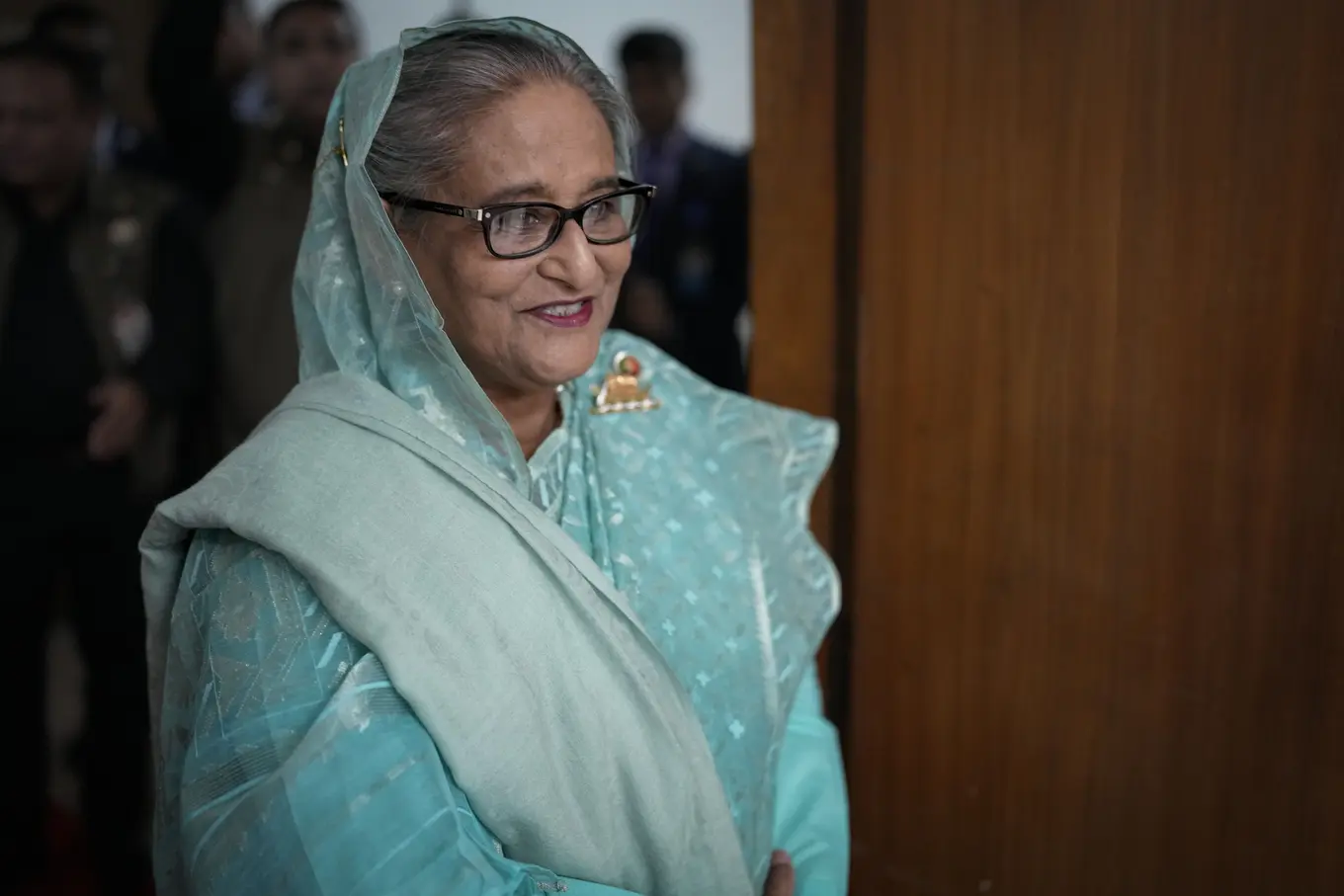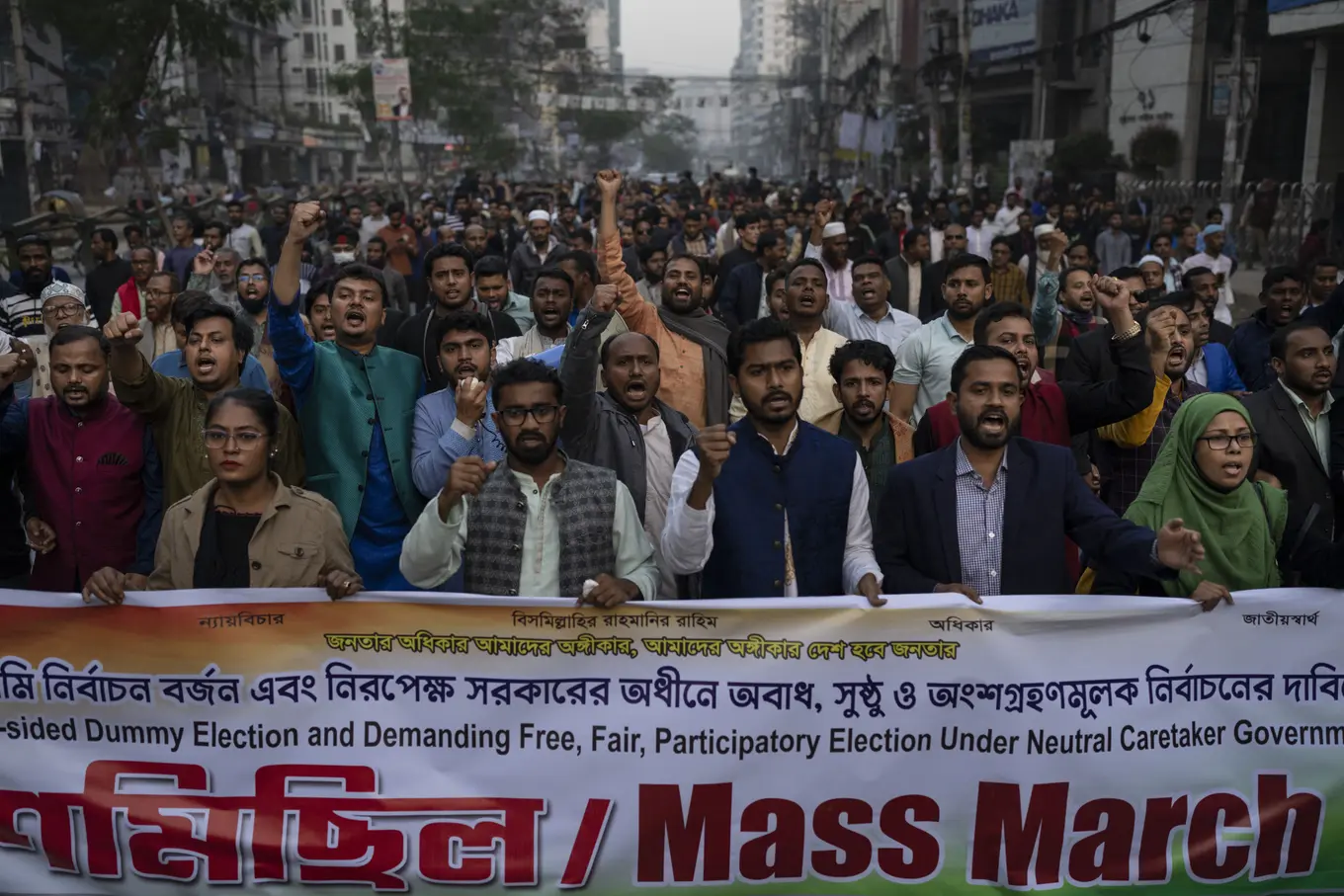
Sheikh Hasina was one of the first to cast her vote on Sunday: Bangladesh’s Prime Minister also used Election Day for a show. She was accompanied by two women: her daughter Saima Wazed and her sister. She appealed to the population to vote despite the opposition boycott. In the end, according to the Election Commission, only 40% of the nearly 120 million eligible voters followed her call. A number that the opposition Bangladesh Nationalist Party (BNP) still seems too high.
Of course, this does not change Sheikh Hasina’s election victory. The 76-year-old will be able to assume her fifth term as Prime Minister as expected. It was already clear on Monday that Hasina’s Awami League will win 222 of the 300 seats in parliament. “We took all possible measures to ensure that the election was fair,” Hasina said at a press conference. She also said that independent candidates had been elected.
However, observers believe that these independent candidates are linked to her Awami League. In government-critical media, they were referred to as “dummy” candidates. Hasina had them nominated specifically to strengthen the legitimacy of the elections after the opposition called for a boycott. She was also aware that a vote without any alternative to the ruling party cannot be called a real election.

The opposition demands the annulment of the elections
With the controversial election, Bangladesh is on the path to becoming a one-party state. The South Asian nation with 170 million inhabitants has been ruled by Hasina with an iron fist since 2009. Around 25,000 opposition members were arrested in the run-up to the election. Ultimately, the opposition boycotted the election in protest against Hasina’s refusal to hand over power to a neutral caretaker government that would organize free and fair elections.
After the vote, senior BNP politician Abdul Moyeen Khan again called for Sheikh Hasina to step down and the annulment of the “sham election.” Badiul Alam Majumdar, chairman of the Citizen’s Network for Good Governance (Shujan), spoke of another “rigged” parliamentary election. He drew comparisons with the 2014 and 2018 elections, in which people were deprived of their right to vote. Western governments are also watching the development with concern.
“Democracy was hard-won in Bangladesh and must not become cosmetic,” said UN Human Rights Commissioner Volker Türk. He called on the government in Dhaka to promote democracy and human rights. The environment for the election had been marred by violence and the persecution of opposition candidates and supporters, Türk said. There were ten arson attacks on polling stations on the weekend. Hasina blamed the opposition for this.
Local election observers say it is difficult to make sense of the recent ballot. Human rights activist Sabria Chowdhury Balland, who is based in the United States, is also observing the development in her homeland with concern. “Many of us can no longer enter Bangladesh because we speak out critically about the situation,” she said. “In recent years, the Awami League has committed a number of human rights violations.”

Experts rate Bangladesh as a “hybrid democracy”
The co-founder of the activist group Coalition for Human Rights and Democracy (CHRD) hopes that the USA and the EU will reassess their relations with Bangladesh after the elections and exert pressure on the government, even if economic sanctions would probably hit the population hard. Many citizens in Bangladesh already live in an extremely difficult situation, as far as their personal freedoms and the economic situation are concerned.
The Swedish research institute V-Dem has been describing Bangladesh as an “electoral autocracy” for years. Experts also speak of a “hybrid democracy”, which describes the transition to autocracy. The country ranks in the bottom third of the Liberal Democracy Index (LDI). In Transparency International’s Corruption Perceptions Index, it ranks 147th out of 180 countries worldwide.
“We can only really vote for the Awami League,” says student Lamia on Monday in the capital Dhaka. Although the election was undemocratic, she felt obliged to cast her vote. In the run-up to the election, there were almost only posters from one party, that of the ruling Awami League, whose party logo is a traditional boat. That gave her pause for thought, says the young woman. Nevertheless, she believes that Sheikh Hasina has achieved a lot in Bangladesh.
There is no real alternative to Hasina.
In fact, the economy has developed very well in the 15 years under Hasina. The former poverty house in the Ganges delta has become the second strongest economy in South Asia after India. Not least thanks to the export-oriented textile industry, per capita income has more than tripled since 2009. The situation of women has improved significantly thanks to the government’s targeted promotion. Millions of people have been lifted out of poverty.
Growth has slowed since the coronavirus pandemic, prices have risen sharply and there are increasing signs of a serious financial crisis. Nevertheless, Hasina presents herself as a guarantor of stability and security. Although the USA is critical of Hasina’s political development, the prime minister has managed to retain the support not only of her large neighbour India but also of the emerging superpower China.
It is often heard on the streets of Dhaka that the prime minister is the only alternative. Her rival Khaleda Zia, with whom Hasina has alternated in power for years, has been politically sidelined. Following a controversial conviction for corruption, the 78-year-old BNP leader is under house arrest, her health in serious decline. At 76, Sheikh Hasina is also at an advanced age. She has not yet appointed a successor. However, there is speculation that Hasina could try to position her daughter as her heir.
